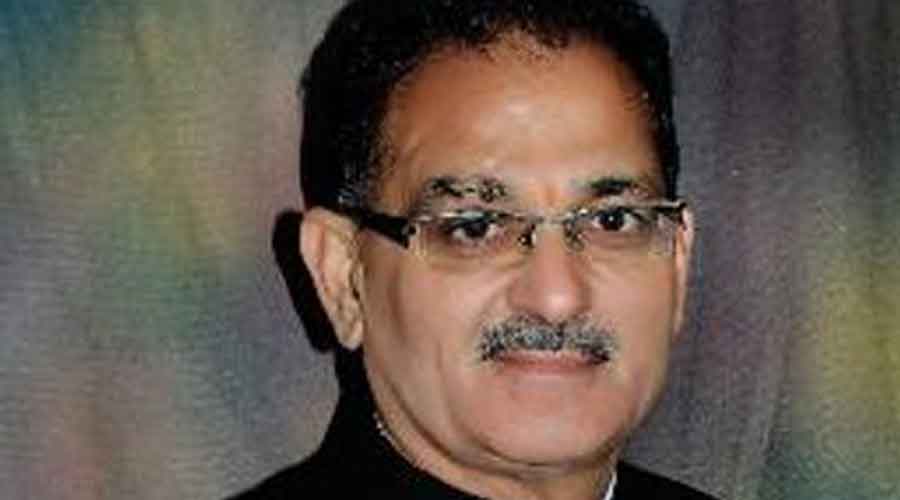A former BJP deputy chief minister of Jammu and Kashmir who had coined the term “land jihad” to vilify Muslims during a party campaign against encroachments had himself been in illegal possession of land, government documents suggest.
Kavinder Gupta, who was deputy chief minister in the PDP-BJP government for a few months in 2018, had, along with Subhash Sharma and Shiv Rattan Gupta, held possession of nearly three acres of state land in Jammu under a now-scrapped law between 2010 and 2016, according to a Jammu and Kashmir government reply to an RTI query.
Under the Roshni Act, 2001, which Jammu and Kashmir High Court struck down last year, the government had given ownership rights to illegal occupants of state land that had been encroached on since 1990. The rights were given against payment in some cases to raise money for power projects.
Since Kavinder and the two others had held the land under the Roshni Act for six years, according to the government’s reply to the RTI query of lawyer Sheikh Shakeel Ahmad, it would suggest that the trio had been encroachers on the plot at some point before that.
Kavinder denied having ever been in possession of the land and demanded an inquiry into how his name had entered government records related to the plot.
The BJP leader was mayor of the Jammu Municipal Corporation in 2010, the year he is shown in government records to have been granted possession of the land.
In 2017, after Kavinder’s possession of the land had ended according to the government records, there were allegations that Muslims had benefited disproportionately from the Roshni Act, or the Jammu and Kashmir State Land (Vesting of Ownership to the Occupants) Act, 2001.
Last year, when the high court struck down the Act calling it unconstitutional and illegal, Kavinder had said the verdict was a “surgical strike on land jihad”, an alleged Muslim conspiracy to alter the Hindu-majority character of Jammu by encroaching on land. The BJP ecosystem had run a vociferous campaign alleging a Muslim plot to change the demography of Jammu. However, the drive backfired when documents studied during the case revealed that the majority of beneficiaries of the Roshni Act were Hindus.
The Jammu and Kashmir government has since filed a review petition and has not implemented the court order to reclaim the land transferred to encroachers, apparently fearing a backlash from voters. The government has contended that the ruling might “unintentionally” affect a large number of common people.
When The Telegraph contacted Kavinder on Saturday, he denied having ever held the land at Ghaink village in Bhalwal tehsil of Jammu. “I have no land there. Find out who has signed it (revenue records and made him a beneficiary). There should be an inquiry to find out (who did it),” he said.
Told that the revenue records show his name, Kavinder said that “if somebody transfers the Taj Mahal to my possession, it will not become mine”.
A revenue official said no land can be written in somebody’s name if the proposed beneficiary is not present in person.
PDP leader and former chief minister Mehbooba Mufti, whose deputy Kavinder had been, said the BJP’s reaction to the Roshni Act was like “a thief threatening a police officer”.
“They stopped it (reclamation of land) because they found a lot of BJP men were involved. They were involved in a lot of scams,” she said.
BJP spokesman R.S. Pathania said it needed to be verified whether Kavinder had held the land.Pathania said the BJP stood by its stand that the Roshni Act was a scam.
“But one thing came to light later (that several poor men had benefited) and a review petition was filed. The BJP sticks to the stand that prime land in the heart of (Jammu) city and municipalities had been leased out to influential people for peanuts,” the party spokesman said.
“That is why we call it a scam. Government properties had been under-priced and given to influential people. It should be taken care of,” Pathania added.
Lieutenant governor Manoj Sinha’s administration had last year publicly named top politicians from the Valley, including former chief minister Farooq Abdullah, as beneficiaries of the act. The leaders have denied the allegation.
Many believe the names of the politicians had been released just before the district body polls to tarnish those who had formed an alliance to contest the elections with a demand for the reinstatement of Jammu and Kashmir’s special status under Article 370.
According to the government’s reply to lawyer Ahmad’s RTI query, Kavinder, Sharma, an Independent councillor in Jammu, and Shiv Rattan had jointly held Khasra No. 1,789 measuring nearly three acres at Ghaink village between 2010 and 2016. Khasra is a number given to a piece of land by the revenue department.











